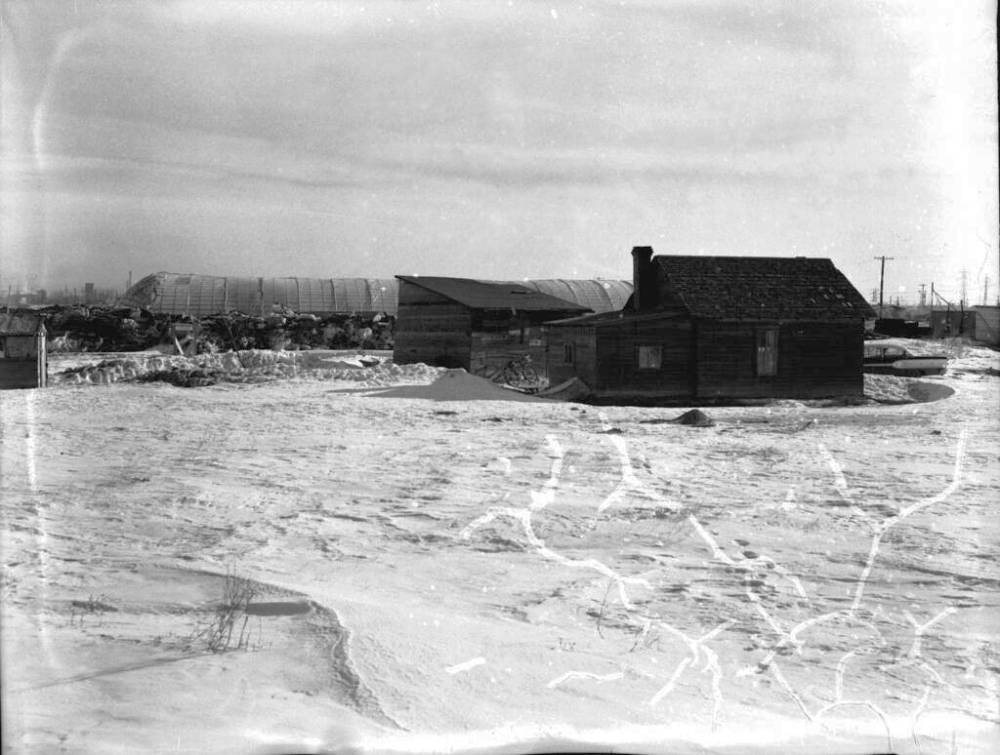Rooster Town may get its due with naming
Advertisement
Read this article for free:
or
Already have an account? Log in here »
To continue reading, please subscribe:
Monthly Digital Subscription
$0 for the first 4 weeks*
- Enjoy unlimited reading on winnipegfreepress.com
- Read the E-Edition, our digital replica newspaper
- Access News Break, our award-winning app
- Play interactive puzzles
*No charge for 4 weeks then price increases to the regular rate of $19.00 plus GST every four weeks. Offer available to new and qualified returning subscribers only. Cancel any time.
Monthly Digital Subscription
$4.75/week*
- Enjoy unlimited reading on winnipegfreepress.com
- Read the E-Edition, our digital replica newspaper
- Access News Break, our award-winning app
- Play interactive puzzles
*Billed as $19 plus GST every four weeks. Cancel any time.
To continue reading, please subscribe:
Add Free Press access to your Brandon Sun subscription for only an additional
$1 for the first 4 weeks*
*Your next subscription payment will increase by $1.00 and you will be charged $16.99 plus GST for four weeks. After four weeks, your payment will increase to $23.99 plus GST every four weeks.
Read unlimited articles for free today:
or
Already have an account? Log in here »
Hey there, time traveller!
This article was published 23/02/2022 (1386 days ago), so information in it may no longer be current.
Decades after City of Winnipeg officials forced Métis families out of a community known as Rooster Town, a park could be renamed to highlight that history.
The city is considering a request to replace the name Pan Am Pool Park with Rooster Town Park as part of the Welcoming Winnipeg: Reconciling Our History policy.
The proposed change aims to honour those displaced from the Grant Park area, a process that was completed by the early 1960s.

Darrell Sais, whose relatives lived in Rooster Town, made the request.
“The expropriation of my grandfather’s land was horrible… they not only took my grandmother’s house and her land but they took her home away from her,” said Sais.
He said the experience was made worse by media reports that inaccurately portrayed the residents as unemployed and deemed all of the homes to be shacks, regardless of their size. Sais said his grandmother found out her home had been claimed by the city when she arrived to pay her taxes.
Since many Winnipeggers know little about this history, a new park name could help change that, said Sais.
“It’s for my family and the other residents of Rooster Town, so they’re not forgotten … It was a very tight-knit community. They looked after each other and they really cared for each other,” he said.
The city’s website notes families settled on the land after being pushed out of their Red River homes. By 1911, 42 families lived in the area.
“In 1951, the city began encouraging suburban development in the area. To remove Rooster Town families, the city and media reported false stories rooted in racist stereotypes that were harmful and humiliating to the community. In 1960, the last few houses were bulldozed and destroyed,” the city’s website notes.
The Winnipeg Free Press is among the newspapers that have been cited as demonizing the residents of Rooster Town at the time and helping to build the political momentum to displace them.
The site now includes the Grant Park Shopping Centre, Pan Am Pool and Grant Park High School.
The Manitoba Métis Federation calls changing the name a key step toward reconciliation.
“It’s a recognition that a wrong was done to a specific group of people, the Métis … (it) is really critical to understand the truth before we can move to the reconciliation,” said Andrew Carrier, the federation’s Winnipeg region vice-president.
Carrier said renaming the park, which is located at Grant Avenue and Cambridge Street, offers a way to honour those “chased out of their homes” and acknowledge how racism played a role in their mistreatment.
“We’re wanting to make sure the City of Winnipeg recognizes the wrong they’ve done and not to repeat that wrong in the future, so this is truly an important step in reconciliation,” he said.
Carrier said there were 250 homes in the area at its peak in the 1930s.
Through the Welcoming Winnipeg initiative, a committee of community members is now reviewing the park renaming request. The committee will make a recommendation on the potential name change for city council to vote on.
In the meantime, the area’s councillor supports a related call to fund new signs at the park, should the name change be approved. Coun. John Orlikow, who represents River Heights-Fort Garry, said the new name would help address the site’s true history.
“There was really a movement afoot in those days to relocate the people who were living there. They were demonized and looked down upon as second-class citizens … It was a horrible thing that happened to them,” said Orlikow.
A motion calls for $2,500 to be approved to fund the new signs, which would be drawn from the ward’s portion of the land dedication reserve fund.
joyanne.pursaga@freepress.mb.ca
Twitter: @joyanne_pursaga

Born and raised in Winnipeg, Joyanne loves to tell the stories of this city, especially when politics is involved. Joyanne became the city hall reporter for the Winnipeg Free Press in early 2020.
Our newsroom depends on a growing audience of readers to power our journalism. If you are not a paid reader, please consider becoming a subscriber.
Our newsroom depends on its audience of readers to power our journalism. Thank you for your support.
History
Updated on Wednesday, February 23, 2022 7:13 AM CST: Updates cutline





